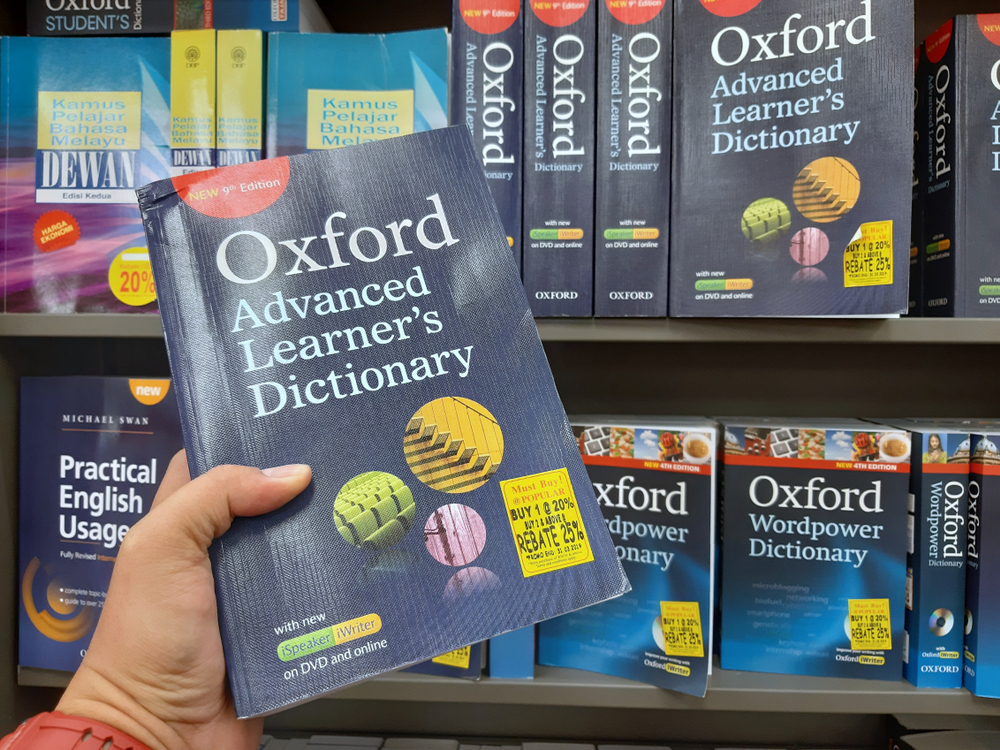Oxford Dictionaries Prepares New Volume for Modern-Day Portmanteaus
 As society evolves, language tends to evolve together with it. As new things are invented, new names have to be found for them. These new names are quite often versions of old names, sometimes more than one of the old names that are merged into a new name. By now, your eyes have probably started drifting into the abyss behind your screen, focusing on anything but the complicated statement above. Luckily, there is a technical term for this phenomenon: the new terms born out of the merger of two or more old terms are called “portmanteaus”. Portmanteaus have become so common these days that both Wikipedia and the Urban Dictionary are overcrowded with them. Since the phenomenon can’t be fought, Oxford Dictionaries decided to take matters in their own hands and publish a dictionary only for them.
As society evolves, language tends to evolve together with it. As new things are invented, new names have to be found for them. These new names are quite often versions of old names, sometimes more than one of the old names that are merged into a new name. By now, your eyes have probably started drifting into the abyss behind your screen, focusing on anything but the complicated statement above. Luckily, there is a technical term for this phenomenon: the new terms born out of the merger of two or more old terms are called “portmanteaus”. Portmanteaus have become so common these days that both Wikipedia and the Urban Dictionary are overcrowded with them. Since the phenomenon can’t be fought, Oxford Dictionaries decided to take matters in their own hands and publish a dictionary only for them.
What’s a “portmanteau” anyway?
“Portmanteau” is a French term that originally referred to a stiff leather travelling bag that opens into two equal parts (port means “to carry”, and manteau means “coat”). It is also used in relation to terms born out of the merger of two words, a bit like two kids wearing a “manteau” (a trench coat in our case) to sneak into the movie theatre to see a movie that’s not meant for their demographic.
Portmanteaus have been around for quite some time now – they’ve been used by author Lewis Carroll in his book “Through the Looking-Glass” – and the term itself was invented by him in relation to some words that he invented. Well, actually, he blamed Humpty Dumpty for inventing these terms. In this day and age, though, marketers can no longer blame this fictional egg for coining some of the ugliest terms in existence so they have to take the blame for words like daycation, babymoon, and televangelist (the word, not the phenomenon, of course).
The Oxford Dictionary of Portmanteaux
Even though coining portmanteaus is the laziest possible way of producing neologisms – new words and phrases that update the spoken language in tune with the requirements of the universe – the phenomenon is very real and here to stay. This is why the Oxford University Press decided to tackle the increasing wave of ugly English terms and gather them into a more organized and standardized format. Their job is quite hard, though, as today’s hyperactive marketing community keeps coming up with new terms that they keep pushing upon the unsuspecting English-speaker non-stop.
Their job is made even harder by the fact that some portmanteaus disappear almost as quickly as the press invents them. Terms like Bennifer (Ben Affleck and Jennifer Lopez) and Brangelina (Brad Pitt and Angelina Jolie) have already served their purpose and joined the many other words we don’t use anymore. There are, in turn, many others that are surprisingly resistant to oblivion: terms like “bromance”, “dramedy”, “romcom”, “infomercial” and “advertorial” seem to have carved out a place for themselves in the common tongue.
The Oxford University Press has recently announced its intention to gather them all in a dictionary – but given the speed at which the language evolves, there is no telling when the publication will be finished. If it ever will.